Bernard Slade
Same Time, Next Year
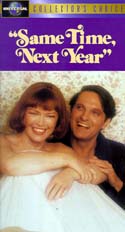
Romantic Comedy
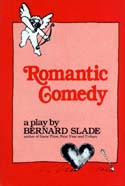
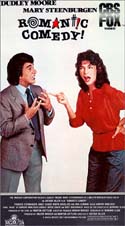
Tribute
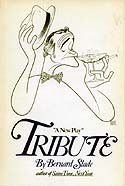

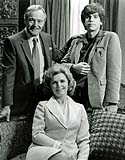
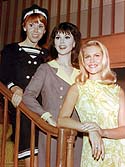
ABC's 1966 Thursday Night lineup: Love on a Rooftop, That Girl, Bewitched
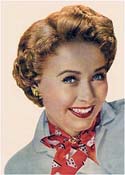
Jane Powell: Mrs. Partridge?

Continued...
GH: It's practically impossible to get a show on the air today. Was it as difficult back then?
BS: It was a lot easier in those days. Basically, I would just go and present it orally to the network. Well, first to Screen Gems, then to the network. They would say, "OK, fine." Then I would go away and write it. I very rarely ever did outlines or anything like that, because I was successful in getting stuff on the air. I was treated better than most. But there was very little to object to. Network executives don't really understand comedy. Plus, I think it was one of the first times that music was so prominent in a show and this was an area they were not familiar with.
GH: It sounds like you were able to prove yourself right away!
BS: When I first came down from Canada, I did a script for "Bewitched" and Danny Arnold liked it so much he immediately signed me to do six more. In the meantime, I had signed on at another studio to be story editor on a series with Bob Cummings and Julie Newmar called "My Living Doll", which was a nightmare to work on. When that ended I was free to go to Screen Gems, and they hired me as a story editor on "Bewitched". I also had a deal to write pilots. It just so happened that the very first pilot I wrote sold. Harry Ackerman was the Executive Producer. Then it seemed that everything else I wrote sold as well, so I became the sort of "fair-haired boy". In a strange way, people were squabbling over who would get to work with me. Since I had started with Harry, I stayed with Harry. He was a nice man, but a bit of a credit grabber. I remember when I saw the pilot film to The Flying Nun, it just said "Written by Bernard Slade". Well it was more than just "written by", it was based on a very slim book. Most of the characters were created by me. I ended up with a credit that said "developed by", which was pretty slim, too.
GH: Danny Arnold left "Bewitched" and Elizabeth Montgomery’s husband, Bill Asher took over. Were politics involved there?
BS: No, Screen Gems had problems on "The Donna Reed Show" because her husband was a producer. They had a lot of power and there were problems because of that. In the beginning, Screen Gems swore they would never have another husband and wife team [where one was a star] ever again. The first year, Danny Arnold was the producer and Bill Asher was a director. After the show was established, Bill and Elizabeth gained some control over the show, but it was never like it was with "The Donna Reed Show".
GH: How much interference did the network cause when you were creating? Did they have a laundry list of changes they wanted made?
BS: Not that I remember. Those were different times and the networks seemed, to me, to have very little input. If there was any, I was protected. Generally, the Executive Producer would try and stop any of that.
GH: When would an Executive Producer be brought in?
BS: Generally, it was before I wrote the script, or just as I was writing. Screen Gems would assign the executive producer to a show. I think that's how Bob Claver got involved.
GH: Was there any secret formula used when you created "The Partridge Family"?
BS: It was very commercially-oriented, if you realize the way it was cast. You had Shirley Jones, who appealed to the parents. You had a kid like David Cassidy, who could be molded into a teen-idol type. Susan Dey was cast because she was sort of every boy's teen-age fantasy. It was like a spectrum across the board. It was written so there was something for everybody.
GH: Was the intention all along to mold David into a teen idol?
BS: I think it was.
GH: Where did the inspiration come for these characters?
BS: Two of the kids were named after my own kids -- Chris and Laurie. We had a dog named Simon, too, although it was changed to Simone in the series when they decided to use a female dog. Keith was named after my daughter's boyfriend at the time. Shirley's father [Ray Bolger] was based on my own father
GH: Where did the name "Partridge" come from?
BS: It was the name of somebody I played soccer with in England. I thought it was a pretty unusual name and it just stuck with me. It turns out to be a fairly common name there. The original name for the series, however, was "Family Business".
GH: Whose idea was it to cast Shirley?
BS: I'm not sure. They considered a number of people for the role. I remember getting a surprising call at my house from Jane Powell. She said she had just read the script, and said it was her life! I thought, "How strange! How could this little script be her life?" But I know she wanted to do it very badly. There was an odd connection between Shirley and myself, too. This isn't why she got the part, but my son Christopher and Shaun [Cassidy, Shirley's oldest son] are the same age and they were in school together, and joined at the hip when they were real small - like seven or nine years old. They would get into trouble on the school buses. And I knew Jack Cassidy, because he was a friend of a friend. I sort of knew the family, except for David.
GH: Was it unusual for an Oscar-winning actress to do TV?
BS: Oh yes, it was considered quite the catch. She had been in major movies like Oklahoma and Music Man. I was quite happy. She had a warm, loving quality and was very pretty to look at. Which was very much like she is in real life.
GH: Was the series cast the way you envisioned?
BS: Danny was not written the way we cast him. In my mind, he was a dark-haired, wiry fast-talking kid that I had based on a child actor named Barry Gordon, from a play called "A Thousand Clowns". So physically, when they tested Danny, he wasn't what I had in mind. But once I saw him on film, I realized that he had an incredible comic sense, which is very unusual in kids. You just don't find it. So we got really lucky with him. In the shows that I wrote, I tended to write towards Danny because I knew that he could deliver comedy. The funny thing is, if he saw me today he probably wouldn't know who I was.
GH: Well, you probably weren't on the set every day, right?
BS: The set was out in Burbank. Screen Gems was at Columbia Pictures Television in Hollwood at the Sunset Gower Studios. When the offices moved to Warner Bros., I think they were still shooting, but I didn't really go on the set a lot. I was writing and there was really no reason. I don't even think the writer went to the first reading of the script. They probably did, but it wasn't like today, where something was rewritten every single day. When they had the first table reading of the script back then, that was the script that was shot. As I recall there were almost no changes made from the original script.
GH: Were you involved in the actual casting?
BS: Yes, very much so. I think I have a very good eye for talent, so when I saw the screen test with Danny, even though he wasn’t what I had envisioned for the role, it was obvious that he had the talent. It’s very rare you find a kid that age who has that innate comedy timing. He had it and it just came off the screen. Also, there was great chemistry between he and Dave Madden. It’s interesting to think, because you hear David whining on and on how terrible it was to be a rock star, with all these girls and making millions of dollars , what would have happened if somebody else besides David was cast in the role of Keith. I wonder if somebody else would have manufactured the same reaction.